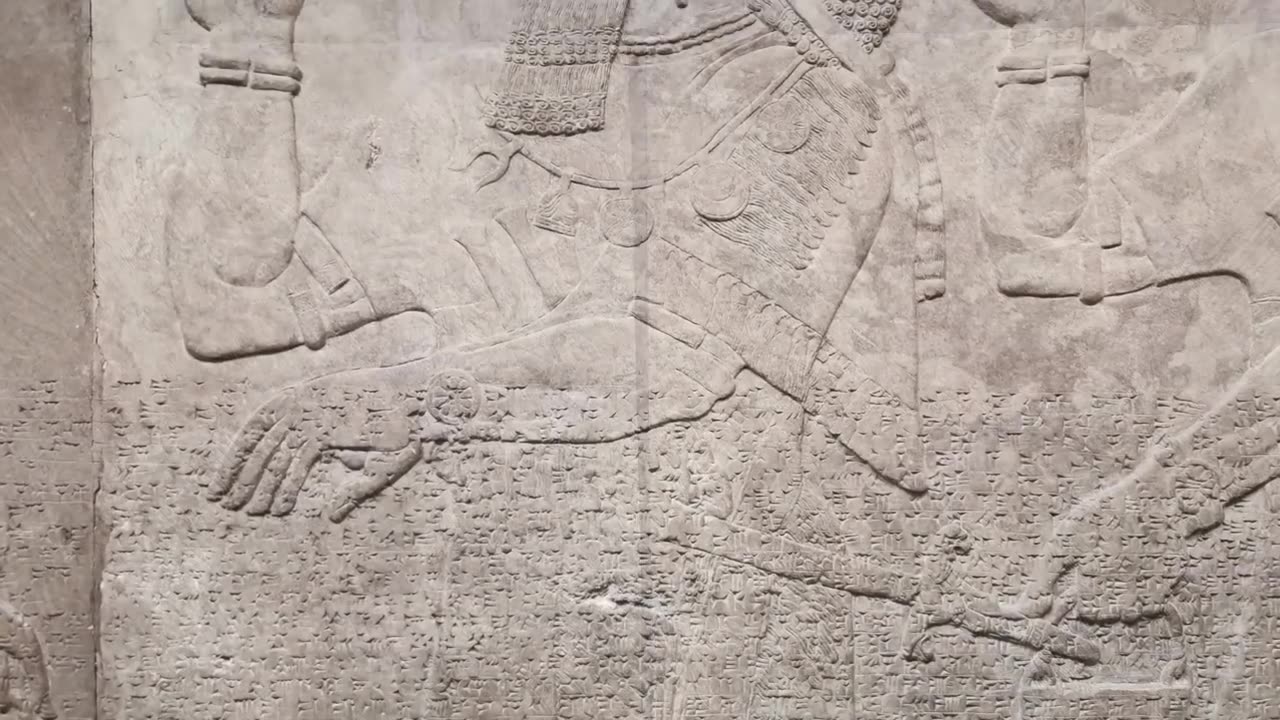Premium Only Content

Kingdoms of Sumeria
Numerous cultures throughout the world have an extensive history of creation myths. The Mesopotamian artefacts from the third millennium B.C. to the end of the first millennium B.C. indicate that while many of the gods were associated with natural forces, no myth particularly addressed the origins of the universe. Simply simply, it was thought that gods existed prior to the world's formation. Almost none of the Sumerian literature from the third millennium B.C. has survived. Several fragmentary tablets contain references to a time before the birth of the gods, when only the Earth (Sumerian: ki) and Heavens (Sumerian: an) existed. Even though there was no moonlight or sunlight, the land was still green and there was water beneath the surface, despite the absence of any vegetation. First-millennium B.C. Sumerian poetry gives further information.
Like their Sumerian contemporaries, Babylonian poets had no explanation for the origin of the world. Among the other types of texts were numerous creation-related tales. Enlil, the former leader of the pantheon, was replaced by Marduk in the Babylonian creation story Enuma Elish, which provides a theological rationale for Marduk's elevation to supreme god. The poem was presumably composed during or just during the reign of Nebuchadnezzar I, which spanned the late twelfth century B.C. Babylon attained political and cultural independence at this time, following several years of foreign Kassite dynasty dominance. The poem hails the achievement of the city and serves as a political tract describing how Babylon displaced Nippur as the venue of religious ceremonies.
-
 1:01
1:01
Truthseekers17
21 days agoKevin O’Leary delivers a harsh reality check to Tesla car burners
981 -
 40:09
40:09
Friday Beers
8 hours ago $5.77 earnedWii Golf Gets Heated: Friday Beers vs Full Squad Gaming
53.7K -
 44:53
44:53
Man in America
15 hours agoThe DISTURBING Truth About Tariffs That NO ONE Is Talking About
58.5K59 -
 32:30
32:30
Stephen Gardner
8 hours ago🚨BREAKING: Trump under INVESTIGATION for Stock Market Manipulation!
62.6K143 -
 59:50
59:50
Motherland Casino
5 hours agoMel x Zofie
29.6K5 -
 44:54
44:54
Ami's House
2 days agoThe Dave Smith Debate is Broken. Here's a Better Way In | Dave's Rogan Appearance
55.5K9 -
 3:47:20
3:47:20
SlingerGames
7 hours agoDiving (get it?) Back Into Subnautica!
31.8K1 -
 58:35
58:35
BonginoReport
11 hours agoFormer Trans Athlete Accepts Biological Reality - Nightly Scroll w/Hayley Caronia (Ep.24) - 04/10/25
157K99 -
 2:48:38
2:48:38
The Sufari Hub
6 hours ago🔴NOT ENDING STREAM TILL I WIN - ROAD TO #1 GAMER ON RUMBLE - #RumbleGaming
14.6K1 -
 1:49:21
1:49:21
Joker Effect
7 hours ago250$$ Giveaway! MOTHERLAND TAKEOVER!
27.8K